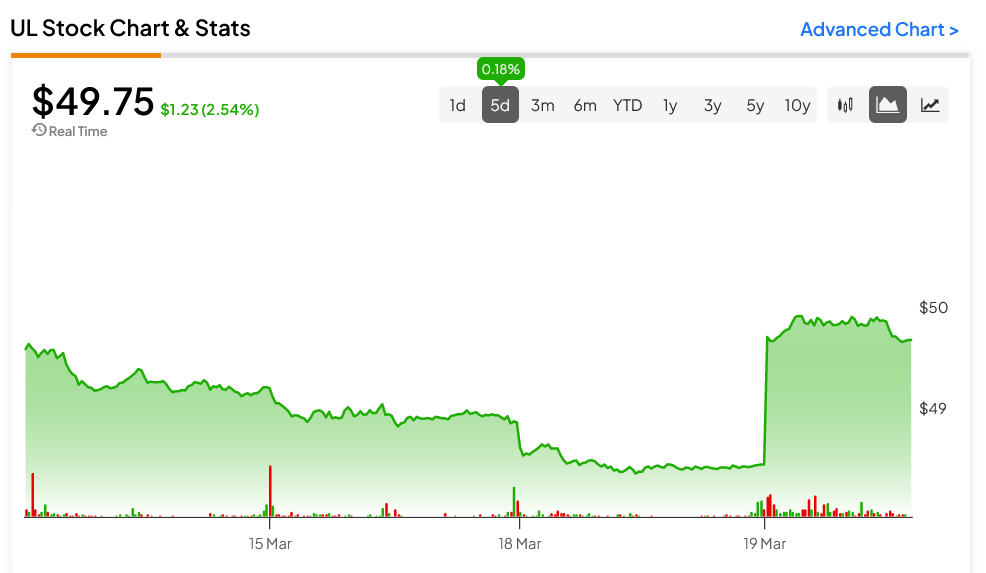It may be a bit too early to think about ice cream, but based on how winter went, we might well see some ice cream weather hit by April. When that happens, those who reach for Ben & Jerry’s won’t be reaching for Unilever (NYSE:UL) any longer. In fact, consumer goods company Unilever is spinning off its ice cream business, a move that proved tasty enough to investors. Unilever shares were up around 2.5% in Tuesday afternoon’s session.
Invest with Confidence:
- Follow TipRanks' Top Wall Street Analysts to uncover their success rate and average return.
- Join thousands of data-driven investors – Build your Smart Portfolio for personalized insights.
The plan to spin off the ice cream unit—which includes Ben & Jerry’s and Magnum—will also cost jobs. Around 7,500 office jobs worldwide will be lost, and the move will cost Unilever about 1.2% of its turnover for the next three years. That’s up from the original projections of just 1%, reports note.
Ultimately, the move is set to save around 800 million euros or about $869.08 million. Unilever is engaging in the move to better focus on its core businesses, including home care, personal care, beauty/well-being, and nutrition.
One Monster Ice Cream Company
So what happens to the ice cream? Here’s the interesting part – that new company is going to be one serious force in the ice cream market. Reports note that once the new company is established, it will have five of the top 10 best-selling ice cream brands worldwide under its collective umbrella: Magnum, Ben & Jerry’s, Walls, Cornetto, and Breyers.
These five together represent sales of around $8.6 billion just last year alone. The new company is expected to be listed on the market by the end of 2025.
What Is the Outlook for Unilever Stock?
A look at Unilever’s last five trading days shows shares that have been on a gradual decline for most of the period—at least until today, when investors seemed only too happy to bid farewell to ice cream and a greater focus on what is, apparently, its core brands. That brought with it a share uptick that wiped out most of the five-day period’s losses.










